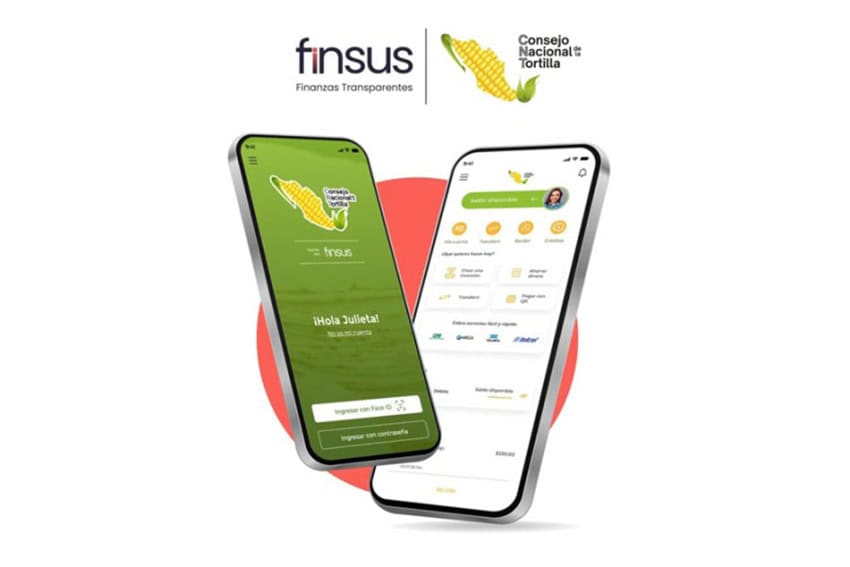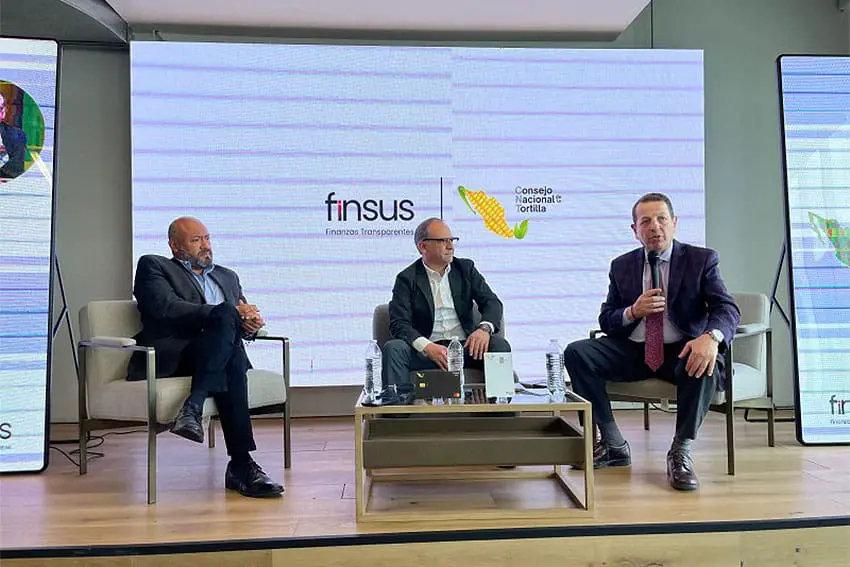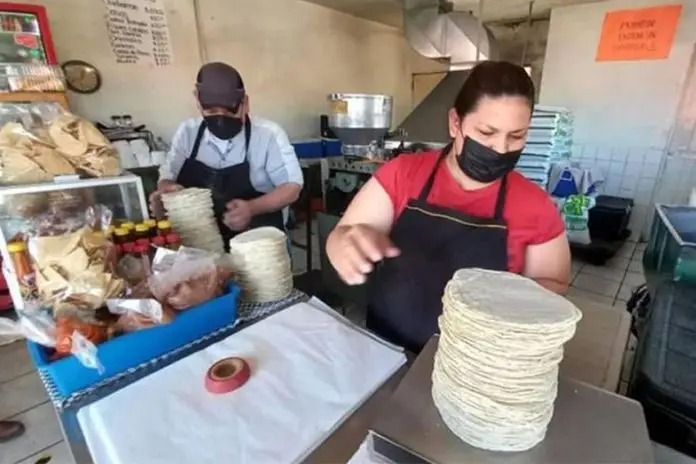Tortilla shops in Mexico have long been the epitome of a small, cash-only business, with tortillerías that take electronic payments only a recent phenomenon that’s still few and far between.
However, a new collaboration between the National Tortilla Council (CNT), one of Mexico’s major tortilla vendor associations, and the fintech digital banking institution Finsus hopes to change that with a new app being promoted to CNT’s members that will allow tortilla vendors to offer customers payments via debit or credit card and other electronic transfer methods.

The app, called CNT x Finsus Digital Platform, allows CNT’s members to not only accept electronic payments but also serve as a payment center for utility bills and the recharging of cell phone plans — transactions Mexicans have been used to conducting at major convenience stores and supermarkets for years.
The app, currently being piloted in CNT’s Mexico City tortilla shops, has allowed some 18,000 tortillerías in the capital to accept payments with CoDi, Dimo transfers and contactless debit and credit cards.
CoDi is a payment method accomplished through QR codes, while Dimo — a service offered by banks that is similar to Zelle in the United States — uses cell phone numbers rather than account numbers for money transfers.
The app, say its creators, gives tortilla shops a way to capture more income — by being able to offer customers more ways to pay, as well as a tool for managing their business’ income.
According to Finsus, CNT tortilla shops that join the program can expect to earn an additional monthly income ranging from 6,000 to 38,000 pesos (US $302 to $1,912). Dealing in electronic payments also provides tortilla vendors with a greater sense of security, the institutions said in a joint statement, since, in theory, the vendor would carry less cash in their shop.
The program also offers participants access to Finsus small-business loans, to low-cost health and life insurance coverage and to preferential discounts from suppliers and allied businesses.

Finsus is one of the country’s largest People’s Financial Society (Sofipo) institutions. A Sofipo is a Mexican microfinance entity founded as a public limited company that promotes savings and credit-building.
For Finsus, the collaboration is a win not only because it introduces the still-young digital banking institution (founded in 2022) to CNT’s members but also because Finsua hopes to spread the word among the wide swath of Mexican society that frequents tortillerías. According to data from the Ministry of Agriculture and Rural Development, Mexicans annually eat 85 kilograms of tortillas per person.
“Consumers will find a connection point with Finsus in the tortillerías,” the company said in a statement. “There, they’ll be able to learn about and download the application, open their accounts and enjoy the benefits that over 250,000 clients already receive.”
Finsus recently launched a similar program for 11,000 indigenous artisans in Mexico — another economic sector that’s frequently cash only — in collaboration with the online artisan shop Mexiutopic. The program makes it possible for the artisans to accept electronic payments and provides free education on financial management.
According to Finsus’ website, banking customers can open interest-bearing accounts with as little as 100 pesos. It also offers loans to small businesses and individuals.
Homero López García, president of the CNT, has said that previously, the financial inclusion of tortillerías has been basically nonexistent in Mexico. He hopes 40% of tortilla shops will adopt the app within a year, and 90% within three years.
“The banks don’t believe in the industry,” he told the newspaper La Jornada. “Whenever I try to pitch [the application], 90% of the banks tell me to go to hell.” However, López said, the new app is “revolutionizing the industry.”
“We are turning the tables,” he said. “They [the CNT members] are saying ‘I like it, I understand it, and we’re going all in.’”
Mexico News Daily
